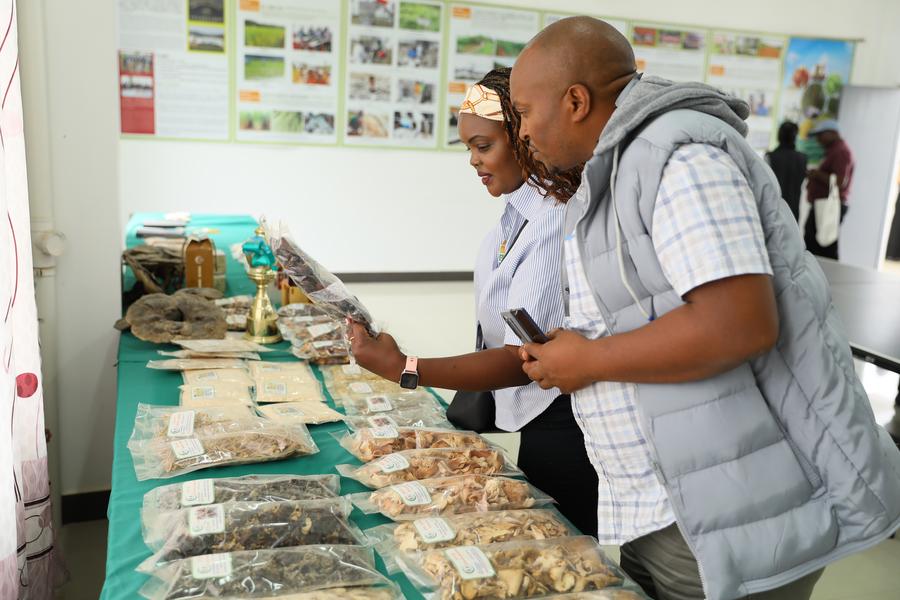Key Takeaways
- Mushroom farming using Juncao technology is being implemented at Busasamana Technical School in Rwanda to improve student meal quality.
- A recent training workshop attracted participants from five African countries to enhance skills in mushroom cultivation and related agricultural practices.
- The initiative aims to address nutrition challenges and support Rwanda’s school feeding program while promoting sustainable agricultural practices.
Innovative Steps in Mushroom Farming in Rwanda
In southern Rwanda, Busasamana Technical School is adopting Juncao technology for mushroom cultivation, which aims to enhance their student feeding program. The initiative seeks to tackle the enduring issues of child hunger and ensure access to education, particularly for those from low-income families.
Alice Allouette Marie Munyurabanga, a physics teacher and feeding program coordinator at the school, believes that mushroom farming could significantly elevate meal quality, especially as some parents struggle to contribute financially. Munyurabanga highlighted the potential of mushroom cultivation to bridge gaps in the school feeding program, although she expressed a need for more knowledge and skills in this area.
Munyurabanga’s participation in the Second African Training Workshop on Applications of Juncao Technology, held at the China-Rwanda Agriculture Technology Demonstration Center (C-RATDC), provided valuable insights. The workshop, co-organized by UN agencies and educational institutions, brought together 57 participants from five African countries, focusing on the innovative uses of Juncao technology in mushroom farming, livestock feed, and environmental sustainability.
Munyurabanga’s prior study tour to China exposed her to Juncao technology, igniting her enthusiasm to implement these ideas at her school. She views the recent training as a pivotal opportunity to broaden her skills in mushroom cultivation. “With the knowledge I have gained, I will be able to help produce enough mushrooms for our students,” she stated.
Developed in the 1980s, Juncao technology serves multiple agricultural purposes, primarily as a substrate for growing various mushrooms, and is also instrumental in livestock feed and ecological restoration efforts. This technology has been successfully adapted in over 100 countries, including Rwanda.
The school integrates mushrooms into student meals at least twice a week, capitalizing on their nutritional benefits while being cost-effective. Munyurabanga revealed that the school has ample land for agricultural purposes, and following her training, her colleagues have embraced Juncao technology. The school has initiated plans to cultivate Juncao grass, which would enable them to produce their own mushroom substrate.
Munyurabanga aspires for her school to become a model for mushroom cultivation and substrate production, offering a resource for other schools to learn sustainable practices. Chen Xiaobin, a C-RATDC expert, expressed interest in organizing future training sessions aimed at bolstering the national school feeding strategy through the application of Juncao technology.
The content above is a summary. For more details, see the source article.















